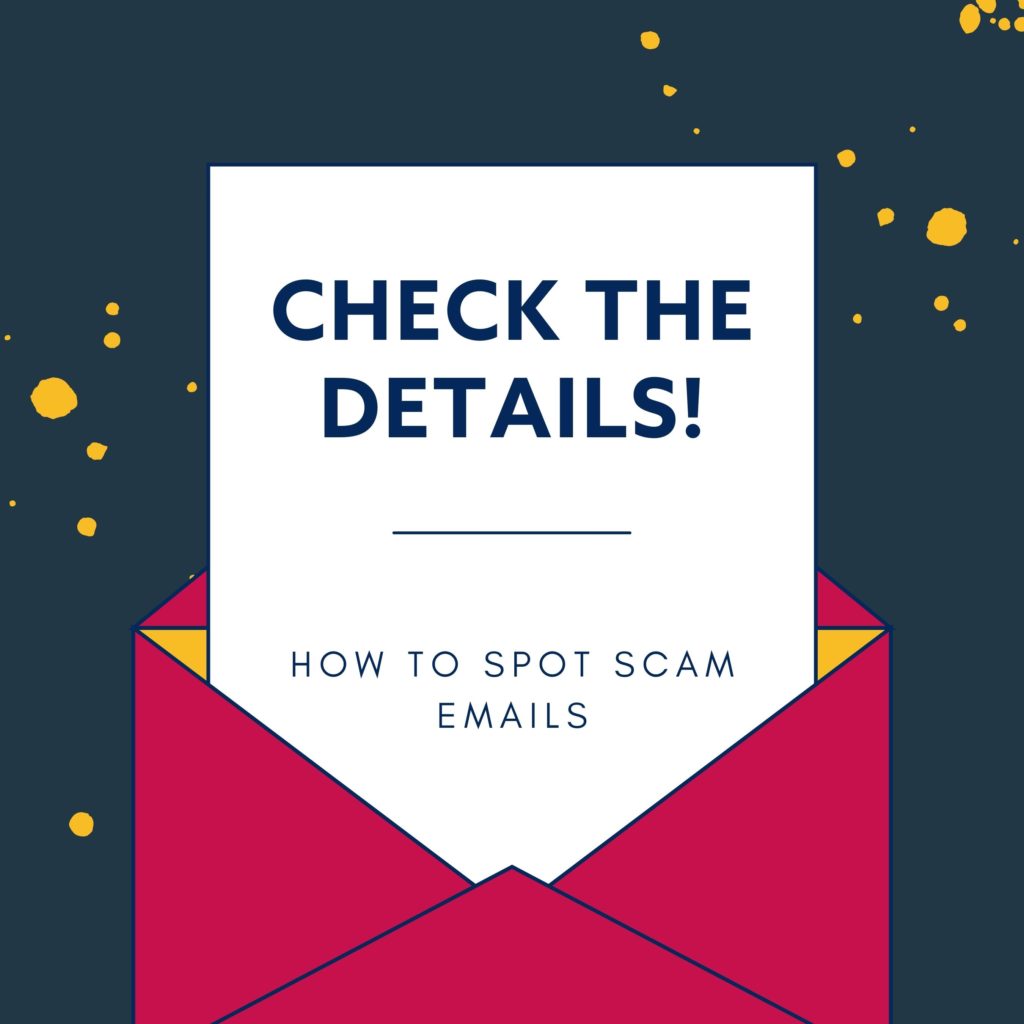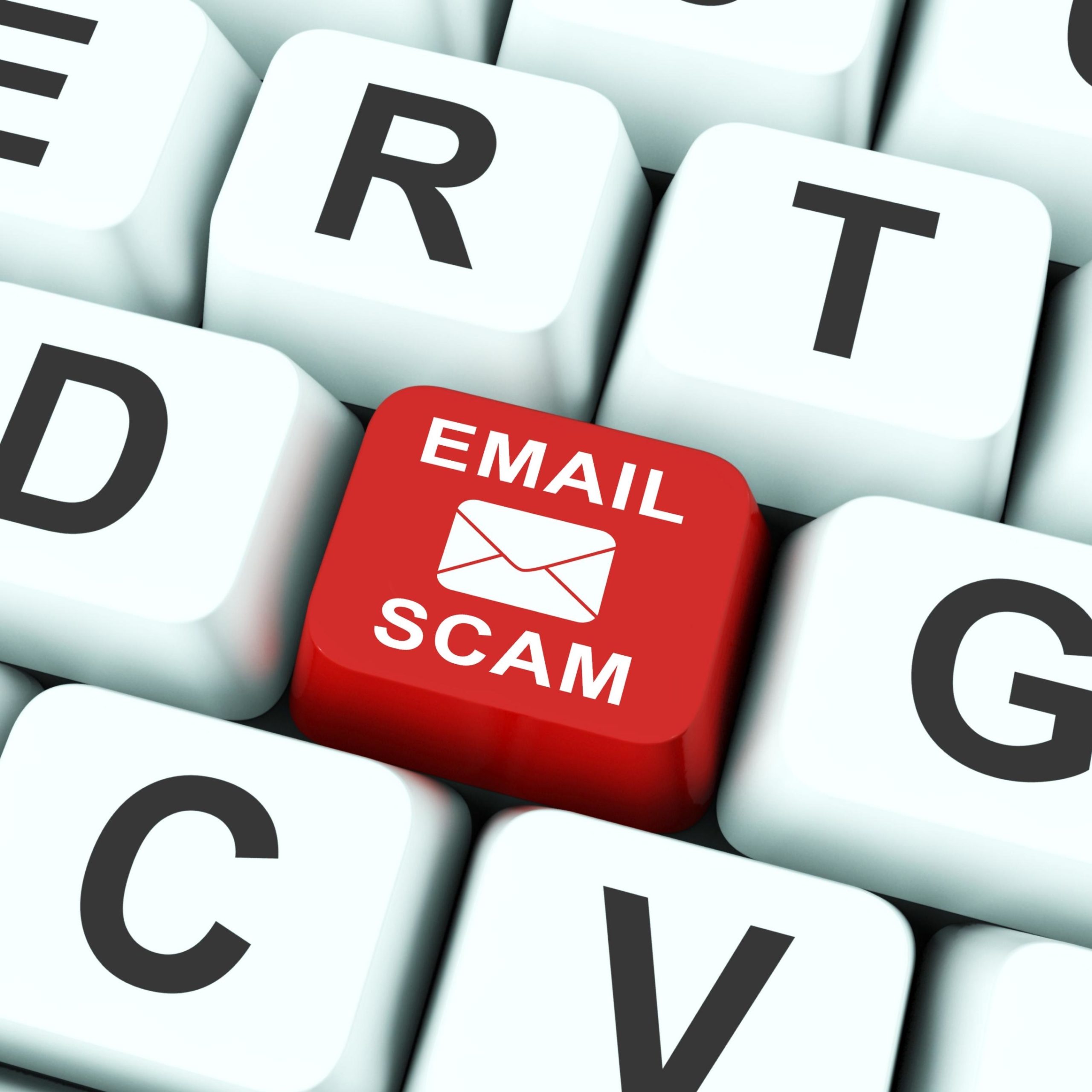

We’ve had a couple of clients tell us their experiences of scam emails recently. So, we’ve put together this blog that should provide you with a few handy tips on how to keep your emails and cyber security safe and up to date.
Scam emails are getting increasingly sophisticated and it can be hard to spot scams or fake emails. So, what do you need to look out for when spotting a scam email? Below are a few tips to help spot those scams.
They might seem like simple things to do but any slight changes could mean the email is a scam.

-
If you’ve got any doubts about the email, check the ‘from’ address. Scammers will often change its name to make it more like the company or organisation they are pretending to contact you from. A scam email usually has a strange emails address behind what looks like a genuine sender name.
-
Poor spelling, grammar and presentation? Scammers are getting better at presenting phishing emails that are more or less free of poor grammar or spelling. But, you should still watch out for these tell-tale signs.
-
Check the branding. Scam emails are often pretending to be from big brands, companies, retailers, supermarkets or from trusted government departments. Checking the branding and keeping an eye on the quality of branded logos, etc, in the emails can strongly indicate if the email is a scam.
-
Check if the website link is legitimate. If you have clicked through to a website or landing page from an email thinking it’s genuine, make sure you double-check the authenticity of the website. If it’s a big brand you can open another tab and do a quick search for them. Click on their website and then compare the URL addresses. Are they the same or totally different? This should give you a good indication as to whether the landing page is fake or not. If you haven’t yet clicked a link but you’re being asked to so you can access an important message on your account, avoid the temptation to act quickly and log in to your account. Instead, log in to your account using a separate window in your browser via the official website. If there isn’t a message you know the email is likely to be a scam.
-
An email asking you for personal or bank details? If an email is asking you for personal or bank details out of the blue, it’s likely to be a scam. Personal information can be things like your mother’s maiden name, national insurance number or pin number. Most companies will never ask for personal information or your bank details to be supplied via email.
 Improving your online security is really important. We live in a world now where we are spending more and more time online. Make sure you protect yourself and your business from cyberattacks or hackers.
Improving your online security is really important. We live in a world now where we are spending more and more time online. Make sure you protect yourself and your business from cyberattacks or hackers.
Here’s a few ways you can increase your cyber security:
-
Ensure you use a strong and separate password for your email account. If a hacker were able to get into your email account they could change passwords for other accounts you hold. They could access information about you and your business. Having your email password different to your other passwords will make it harder to crack or guess. You should also protect your other important accounts, such as banking or social media.
-
Create strong passwords using 3 random words. This is the government advice from Cyber Aware. When you use different passwords for your important accounts it can be hard to remember them all. Don’t use words that can be guessed, like your pets name. Include numbers and symbols in your password.
-
Save your passwords in your browser. This means letting your web browser remember your password for you. This helps make sure you don’t lose or forget your passwords. It can protect you against cybercrime, like fake websites. Be sure to protect your passwords in case your device is lost or stolen.
-
Turn on two-factor authentication (2FA). This helps stop hackers from getting into your accounts, even if they have your password. some online banking uses 2FA automatically. It does this by asking for more information to prove your identity, such as sending a code to your phone.
-
Update your devices. Out of date software, apps and operating systems contain weaknesses. This makes it easier to hack. You can turn on automatic updates for your devices and the software that offers to do so. Some devices and software need to be updated manually. You may get reminders to update, don’t ignore these! Updating will help keep you safe online.
The most important thing to do if you do receive a scam email, text or phone call is to report it to the relevant authorities. Reporting the fraud helps stop criminals and prevents others from falling victim to the same scam.
For more information on how to keep emails and cyber security safe and up to date, check out Cyber Aware the government cyber security website.
Give us a call for all your tax and accounting needs!
